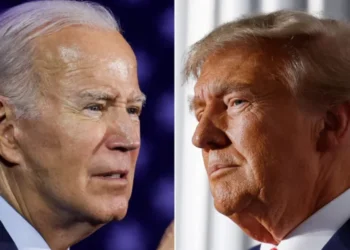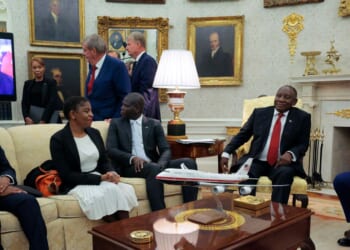Indonesia and other nations are right to demand higher levels of scrutiny when doing business with Western firms that are charging exorbitant prices for systems that underperform.
“India won the war but lost the narrative,” read one headline that came out of its recent four-day war against Pakistan. That headline, incidentally, was in response to an analysis I wrote in these pages on the first night of the war, entitled, “How Chinese Missiles Routed India’s Air Force Over Pakistan.”
The earlier article went viral inside India and led to a lively debate on Indian social media. As the title suggests, that essay was a simple analysis of the performance of Chinese-made systems such as the PL-15 air-to-air missile, as well as the Chinese-provided J-10C and J-17 “Thunder” warplanes. During the war, the Chinese equipment squared off against Western systems, such as the French-built Dassault Rafale warplane and the French Meteor air-to-missile system.
Based on all available data—as well as French intelligence sources—my claims in the earlier essay were that China’s systems outperformed all expectations, while the French systems underperformed. This in turn damaged India’s war plan, forcing New Delhi to escalate the conflict—prompting American intervention, and ultimately a ceasefire.
France’s Fighters Underperformed in India
Of course, social media being what it is, many of the facts cited in the piece have been buried under mountains of hostile invective. But the analysis within it was sound. At the end of the day, that article simply highlighted a trend that has been underway for the better part of a decade: China has taken their mass production industrial supremacy and married it to quality. For half the price, China’s PL-15 missile and the Chinese warplanes in the Pakistan Air Force more than held their own against the much-heralded, and far more expensive, Western systems.
This amounted to a warning shot to all who fear a coming world war between the United States and China, as the two powers will face a similar dynamic to that which both the Pakistanis and Indians faced.
And today, weeks after the dust has settled in the India-Pakistan fracas, multiple nations are reassessing their decisions to purchase Western weapons—particularly French-made weapons and planes like the Dassault Rafale warplanes and the aforementioned Meteor air-to-air missile.
One nation, Indonesia, a key country for the West as it competes with China for influence and access in Southeast Asia, has already repudiated the French defense contractor.
Indonesia Just Paused Its $8.1 Billion Dassault Rafale Purchase
According to multiple reports, including from the South China Morning Post (SCMP), the Indonesian government has placed their $8.1 billion deal with Dassault, the French firm that makes the Rafale warplane, under review.
The report in the SCMP explains that the poor performance of the French systems used by the Indian Air Force (IAF) is making Jakarta squeamish. After all, who wants to spend an enormous amount of money to purchase 42 premium fighter aircraft that might not work as well as far cheaper and more numerous Chinese competitors?
Moreover, in spite of their public-facing comments of superiority and pride in their weapons, internal sources indicate that the Indian government has quietly expressed concern over the performance of the French-made systems in their recent war with Pakistan.
Western militaries have long used the legend of their advanced weapons systems as a major selling point for foreign countries such as India and Indonesia. There are political ramifications to these deals, too: by buying Western planes, developing countries are locked into long-term maintenance and upgrade agreements with Western defense contractors in order to keep the planes flying. This, in turn, makes these countries more likely to side with the West in international affairs.
This is a good deal for the West. But it all hinges on the notion that Western firms can charge top dollar for their systems because their weapons are better and will outperform any other nations’ that they face off against. The recent India-Pakistan war seems to have given lie to these claims; if Pakistan’s rout of India’s fighters is any indication, China can build systems comparable to those in the West for far cheaper than what those Western firms are charging.
The West Must Adapt to Foreign Competition
So Indonesia and other nations are right to demand higher levels of scrutiny when doing business with Western firms that are charging exorbitant prices for systems that underperform.
Competition used to be something Western societies valued. Regardless of whether China engages in industrial-scale espionage against Western firms—and they do—the basic fact is that Western defense firms like Dassault should welcome competition from China. That competition will not only lower prices for all nations seeking to defend themselves, but it will force them to build superior products as well.
As things stand, China is building better systems that are cheaper to produce. That is how Beijing is beating the West in the all-important domain of weapons manufacturing and arms sales. And that is how the West will better compete with China, too. But Western defense oligarchs need to get out of the way and let the actual process of competition take root. Otherwise more firms will start losing their coveted contracts to cheaper—and perhaps better—Chinese-made systems.
About the Author: Brandon J. Weichert
Brandon J. Weichert, a Senior National Security Editor at The National Interest as well as a contributor at Popular Mechanics, who consults regularly with various government institutions and private organizations on geopolitical issues. Weichert’s writings have appeared in multiple publications, including the Washington Times, National Review, The American Spectator, MSN, the Asia Times, and countless others. His books include Winning Space: How America Remains a Superpower, Biohacked: China’s Race to Control Life, and The Shadow War: Iran’s Quest for Supremacy. His newest book, A Disaster of Our Own Making: How the West Lost Ukraine is available for purchase wherever books are sold. He can be followed via Twitter @WeTheBrandon.
Image: Shutterstock / Peter R Foster IDMA.

















